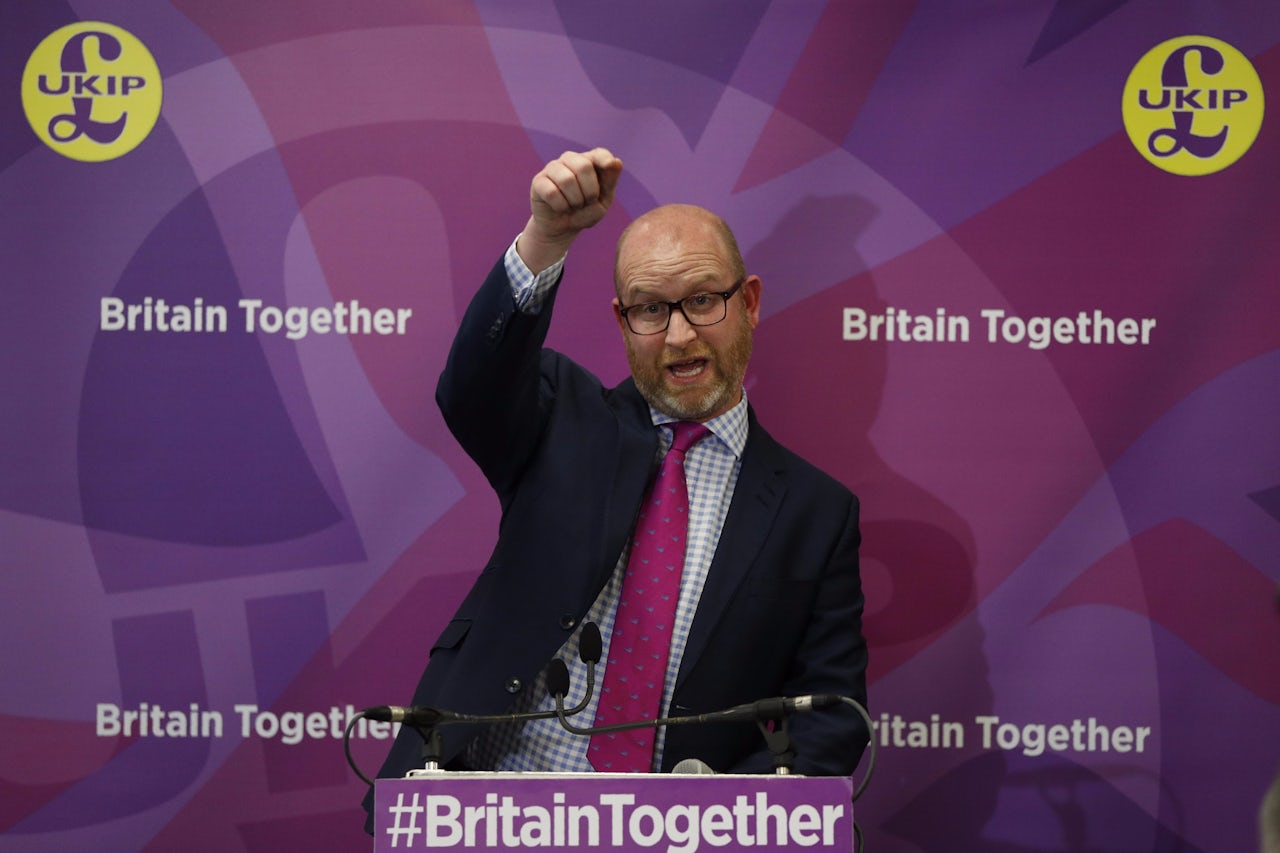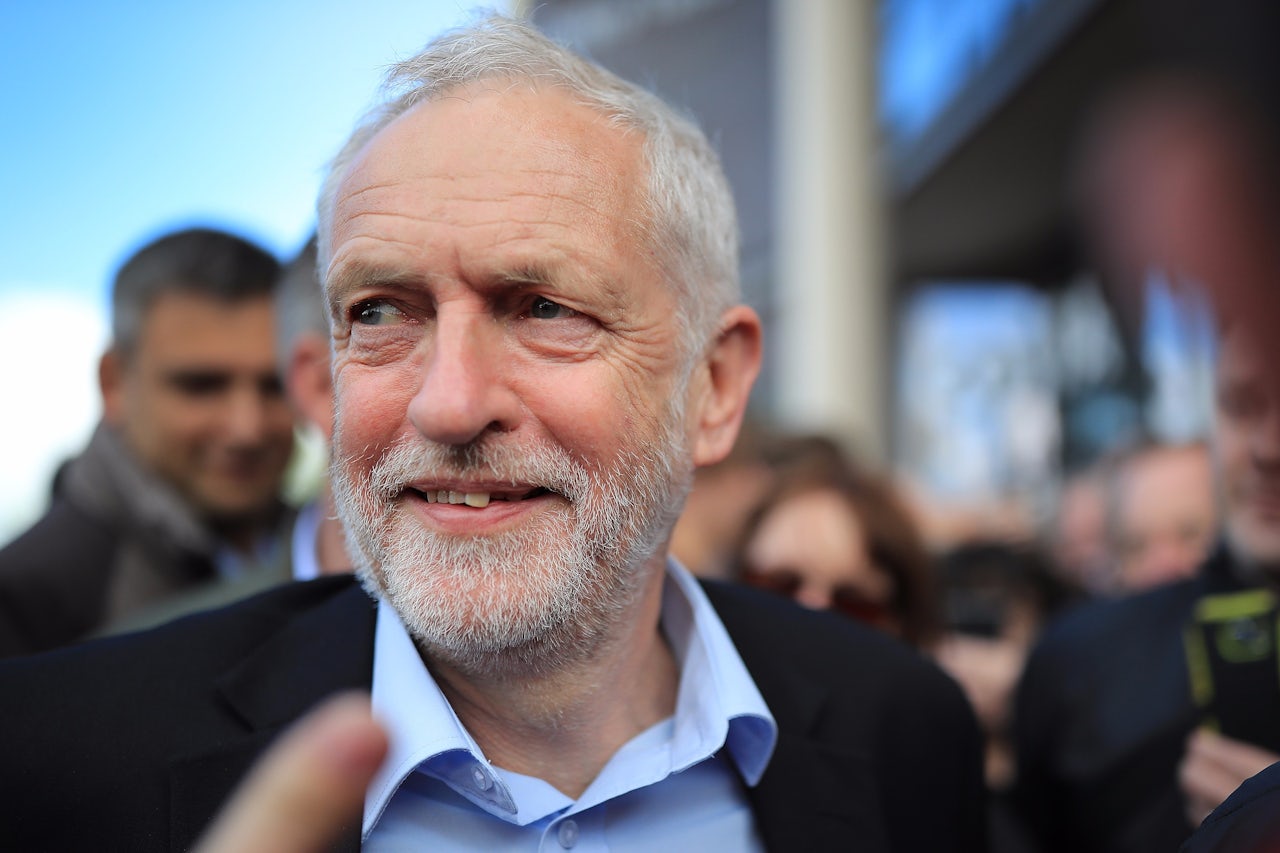The party that sparked Brexit has been ditched by British voters.
A year ago, the U.K. Independence Party, commonly known as UKIP, successfully led the “leave” campaign that caused Britain’s exit from the European Union. UKIP has been kicking around British politics since the early 1990s, but stepped into the limelight when Nigel Farage took over the leadership in 2009, with its focus on leaving the EU winning it a seat in the U.K. parliament as well as a handful more in the European Parliament. But in yesterday’s general election, the party’s share of the vote plummeted to 1.8 percent from 12.6 percent in 2015. It lost its lone seat in Parliament and its leader, Paul Nuttall, resigned. Meanwhile, the Conservative government, which was bullied into supporting Brexit by UKIP, lost its majority in Parliament.
Does UKIP’s election failure come down to a sudden realization from voters that the party’s anti-immigrant, Islamaphobic rhetoric is disgusting? Nah, mate. Instead, UKIP is done because it’s a single-issue group that already won its battle.
Before the election was called, UKIP’s only representative in Parliament was Douglas Carswell, who in March said the Brexit result meant there was “no point” to the party and subsequently left it, as UKIP had achieved its main goal. Carswell didn’t run in this latest election and pledged to vote Conservative. Party leader Nuttall appeared to agree with Carswell’s criticism, saying as he resigned that UKIP had been a “victim of its own success.”
There was evidence of that before the general election. Post-Brexit, donations to the party dried up. The Economist reported it raised just £325,000 in the nine months after the referendum, versus £1.8 million in the nine months before.
Once the election kicked off in April, UKIP didn’t help itself. Nuttall himself committed many painful missteps, including falsely claiming to have lost a friend in the Hillsborough stadium panic in 1989, that led to the deaths of 96 football fans and calling Leanne Wood, the leader of Welsh party Plaid Cymru, “Natalie” twice during a television debate.
UKIP is done because it’s a single-issue group that already won its battle.
There may be someone else to blame for the party’s dissolution: Trump. FiveThirtyEight’s Nate Silver said on Twitter today that UKIP was polling at 4 percent before the election versus the 1.8 percent it actually won, and that “every European nationalist party has underperformed its polls since Trump was elected.”
Someone else should get some credit. Voting figures suggest Labour leader Jeremy Corbyn won a fair chunk of UKIP votes away from right-wing Conservative rivals. However, many who voted for UKIP in previous elections are former Labour voters, and Corbyn’s outsider, populist appeal may have helped return them to the fold rather than shifting to the establishment Conservatives. Plus, Corbyn’s vague support for Brexit would have helped keep Europe from becoming a deciding issue for former UKIP voters looking for a new party to back.
As welcome as UKIP's stumble and possible demise may be, it sadly doesn't mean its former leader, fascist-leaning Nigel Farage, is going away. Despite no longer being involved in any political party and his own previous party hitting the skids, Farage remains a welcome commentator on the BBC and other networks, including in the U.S. So many people were wondering why someone not directly connected to the election was being interviewed so frequently by journalists that Twitter made a “Moments” collection of the tweets.
Though the apparent implosion of UKIP means the Conservatives may have lost one right-wing populist partner, they've gained a new one: the Democratic Unionist Party of Northern Ireland. The Conservative party’s failure to secure a majority means it can only hold power by working with the Democratic Unionist Party, which has policies against abortion and equal marriage and has climate change deniers among its leadership. While UKIP may have been defeated in this election, once again the Conservatives find themselves beholden to another far-right group.

